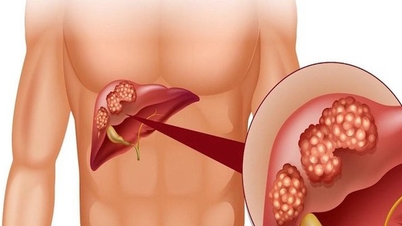One of the most popular forms today is intermittent fasting, which involves alternating between eating and not eating during the day or week, according to the health site Verywell Health .
When done correctly, fasting can have many clear benefits for overall health, said Ashley Baumohl, a nutritionist working in the US.
Blood sugar control
Intermittent fasting is effective in controlling blood sugar. In people with prediabetes, blood sugar and blood triglyceride levels both decreased significantly after applying this method.

Intermittent fasting may help control blood sugar
Photo: AI
Helps reduce inflammation
Fasting also helps reduce chronic inflammation, one of the causes of many serious diseases.
When inflammation levels in the body are reduced, the immune system functions better and helps prevent chronic diseases such as cardiovascular and metabolic disorders.
According to research, long-term intermittent fasting significantly lowers blood markers of inflammation and reduces cardiovascular risk factors.
Losing weight
One obvious benefit of fasting is that it aids in weight loss. When the body does not receive energy for a certain period of time, it will use stored fat for energy.
In addition, fasting also helps regulate hormones that control hunger, thereby supporting reduced food intake.
People on this diet can lose an average of 3 to 5 kg in about 10 weeks.
Increase natural growth hormone levels
The body's natural growth hormone levels play an important role in maintaining muscle mass, burning fat, improving metabolism, and slowing aging.
After just 24 hours of fasting, growth hormone levels increase significantly and can increase tenfold if the fasting period is slightly longer.
Improve heart health
Eating every other day helps reduce blood pressure, total cholesterol and LDL cholesterol, thereby reducing the risk of heart disease, especially in people who are obese or have an average weight index.
Neuroprotection
This approach helps support nerve cell activity, maintains cognitive function, and has the potential to prevent neurodegenerative diseases such as Alzheimer's.

Intermittent fasting may help reduce the risk of certain cancers through improved metabolic function and effective weight control.
Photo: AI
Reduce the risk of certain cancers
Fasting may help reduce the risk of certain cancers through improved metabolic function and effective weight control.
If you maintain a healthy lifestyle combined with proper fasting, the disease prevention effect will be better.
Prolong life
In addition, fasting properly can also contribute to prolonging life and maintaining good health for a long time.
This mechanism works by reducing the risk of chronic diseases with age, improving the immune system, gut microbiota and the body's natural anti-aging processes.
Notes when fasting
You need to choose a fasting method that suits your lifestyle and personal health.
Before fasting, you should drink enough water, eat enough nutrients and start with simple forms to let your body get used to it gradually.
During fasting, maintain light activity, and stop if you feel tired or experience uncomfortable symptoms.
However, intermittent fasting can cause some side effects such as headaches, hunger, dizziness, irritability, fatigue, and dehydration. These side effects are common in people who fast for too long or do it incorrectly.
In addition, some groups should avoid fasting completely, including pregnant or breastfeeding women, the elderly, children, people with eating disorders, and people taking special medications.
Before starting any form of fasting, you should consult a medical professional to ensure it is appropriate for your personal health condition.
Source: https://thanhnien.vn/dieu-gi-xay-ra-voi-co-the-khi-ban-nhin-an-185250804235335224.htm









































































































Comment (0)